Media Contact: Diara J. Townes, diaratownes@gmail.com, Consultant, CuriousScout Media
Cameroon American Council Contact: Sylvie Bello, CEO & Founder, Cameroon American Council Cameroon.american.council@gmail.com and 1(929) 553-3956
Crisis at Our Doorstep: Biden’s Angola Visit Exposes Blindspot for Central African Immigrants; Activists Urge New England Leaders to Act Now for Undocumented Migrants from Angola, Congo, and Cameroon
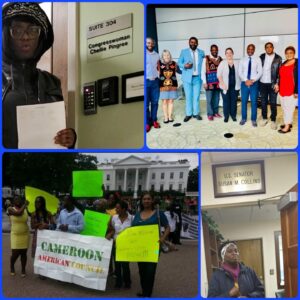 Lewiston-Portland, ME (December 18, 2024) — The Cameroon American Council (CAC), the nation’s leading African immigrant advocacy organization, is calling on leaders in New England and beyond to address the urgent immigration needs of Angolan, Congolese, and Cameroonian communities. As President Biden’s recent visit to Angola highlights U.S.-Africa relations, critical gaps persist in ensuring protections for African immigrant communities across the United States.
Lewiston-Portland, ME (December 18, 2024) — The Cameroon American Council (CAC), the nation’s leading African immigrant advocacy organization, is calling on leaders in New England and beyond to address the urgent immigration needs of Angolan, Congolese, and Cameroonian communities. As President Biden’s recent visit to Angola highlights U.S.-Africa relations, critical gaps persist in ensuring protections for African immigrant communities across the United States.
During his visit, President Biden met with the Presidents of Angola, Congo, and Cape Verde, yet failed to acknowledge several significant contributions and challenges faced by African immigrants tied to New England, including:
● The storied history of Cape Verdeans in New England’s whaling industry is a cornerstone of the region’s economic and cultural legacy.
● The growing number of Angolan and Congolese migrants fleeing violence and arriving at the southern border, many of whom have sought refuge in Maine.
● The vibrant Cameroonian community in Lowell, Massachusetts, is the official sister city relationship with Bamenda, Cameroon.
To amplify these issues, CAC is embarking on a New England-specific 5-State Tour to spotlight its “5R Initiative” and advocate for immediate immigration relief measures, including:
● Temporary Protected Status (TPS) for Angola and Congo.
● Special Humanitarian Parole for Cameroonians fleeing violence.
These efforts will culminate in a rally on Friday, December 20, in Washington, DC, where advocates and community members will demand urgent executive action by the Biden administration.
A Call to Action
Highlighting the dire consequences of inaction, Congresswoman Yvette Clarke (D-NY) stated:
“We cannot turn a blind eye to the danger immigrant Americans will face under the incoming administration. Today, I hosted colleagues and advocates to urge @POTUS to take action during this lame-duck session that prioritizes and protects their lives, families, and futures.”
This rally and the 5-State Tour aim to build on that momentum, urging policymakers to ensure equitable protections for African immigrants who have long been overlooked in U.S. immigration policy.
Key Actions in New England
● Five-City Tour and Maine Congressional Engagement: CAC is meeting with local leaders and congressional delegations to build support for TPS and Special Humanitarian Parole.
● Vigil and Rally in Lewiston-Portland, Maine metro area: A community vigil and rally will occur on Wednesday, December 18, at 7:30 PM in Lewiston-Portland. Featured speakers include Sylvie Bello, founder of CAC, alongside Mr. Nicolau Cucubica; Pastor Samuel Manuel; and Ana Mavungo, undocumented Angolans in Maine.
● Rally in Washington, DC: The campaign will culminate with a rally on Friday, December 20, in Washington, DC, uniting grassroots voices, activists, and community leaders to amplify the call for immigration protections, including Sylvie Bello, founder of CAC and Dr. Yves Kaduli, a Congolese advocate.
● Virtual Congressional Advocacy: CAC will host online advocacy sessions uniting activists, policymakers, and affected families.
Why This Matters
“We urge Representative Pingree and other New England leaders to follow the example of Washington, DC Councilmember Zachary Parker, and Congresswoman Yvette Clarke in advocating for these vital protections,” said Sylvie Bello, Founder of CAC. “New England’s African immigrant communities cannot wait any longer for equitable immigration policies.”
Recent and Relevant Media Coverage
● Three Voices, One Mission: President Biden, Protect Central African Migrants Through Executive Power
● A Promise Made in Angola, A Future at Stake in Maine: Why Biden’s ‘All In On Africa’ Commitment Must Include TPS for Undocumented Angolans Like Me
● From Chains to Change: Biden’s Legacy on the Line on His Historic Trip to Central Africa in Angola
● Shaheen, Hassan, Pappas Join New Bicameral Push to Protect Cameroonians in the Face of Mounting Violence
About the Cameroon American Council
The Cameroon American Council is the premier African immigrant advocacy organization in the United States, dedicated to amplifying the voices of African communities and addressing critical immigration, cultural, and social issues.
Stay up to date with us on social media:
Facebook: Cameroon American Council
Instagram: @camamercouncil
TikTok: @camamercouncil

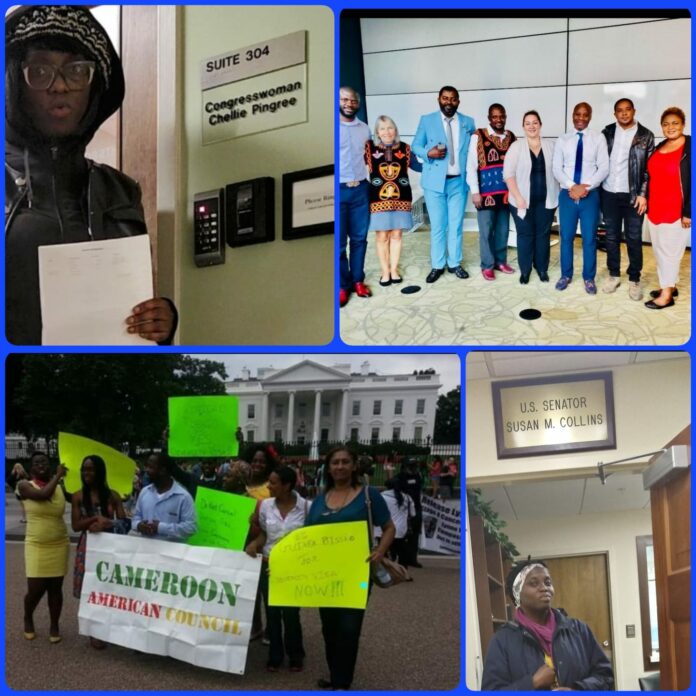
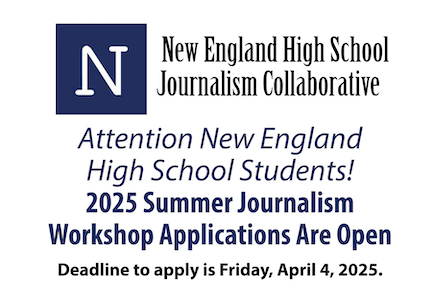
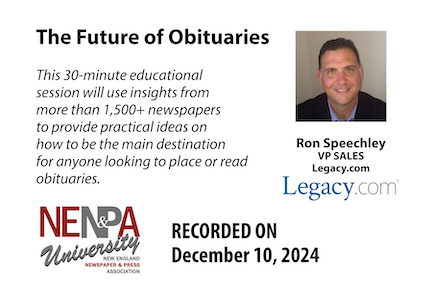
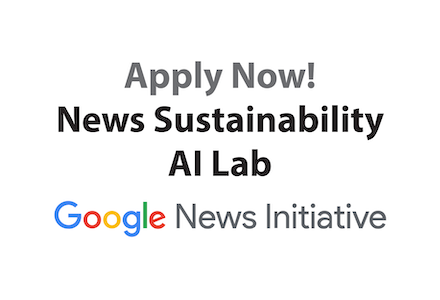
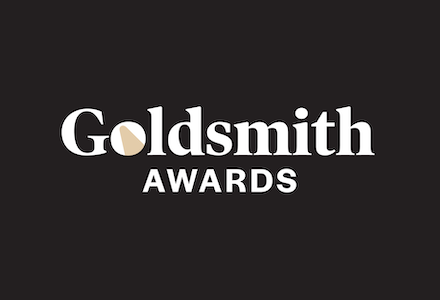
 The Shorenstein Center is now accepting submissions for the 2025 Goldsmith Awards! The Goldsmith Awards Program strives to foster a more insightful and spirited public debate about government, politics and the press, and to demonstrate the essential role of a free press in a thriving democracy.
The Shorenstein Center is now accepting submissions for the 2025 Goldsmith Awards! The Goldsmith Awards Program strives to foster a more insightful and spirited public debate about government, politics and the press, and to demonstrate the essential role of a free press in a thriving democracy.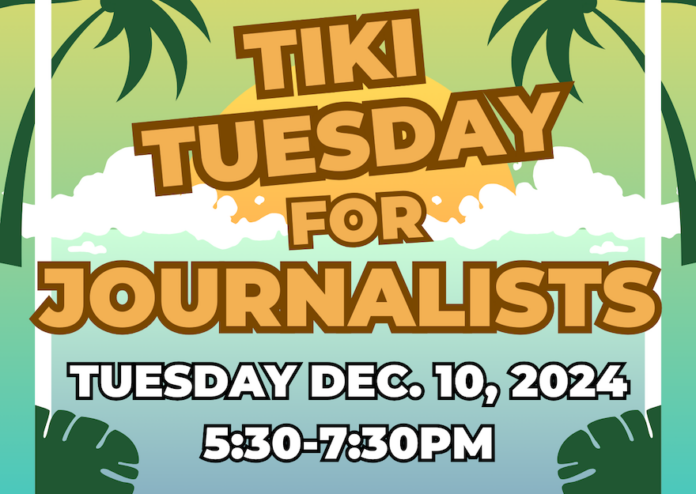
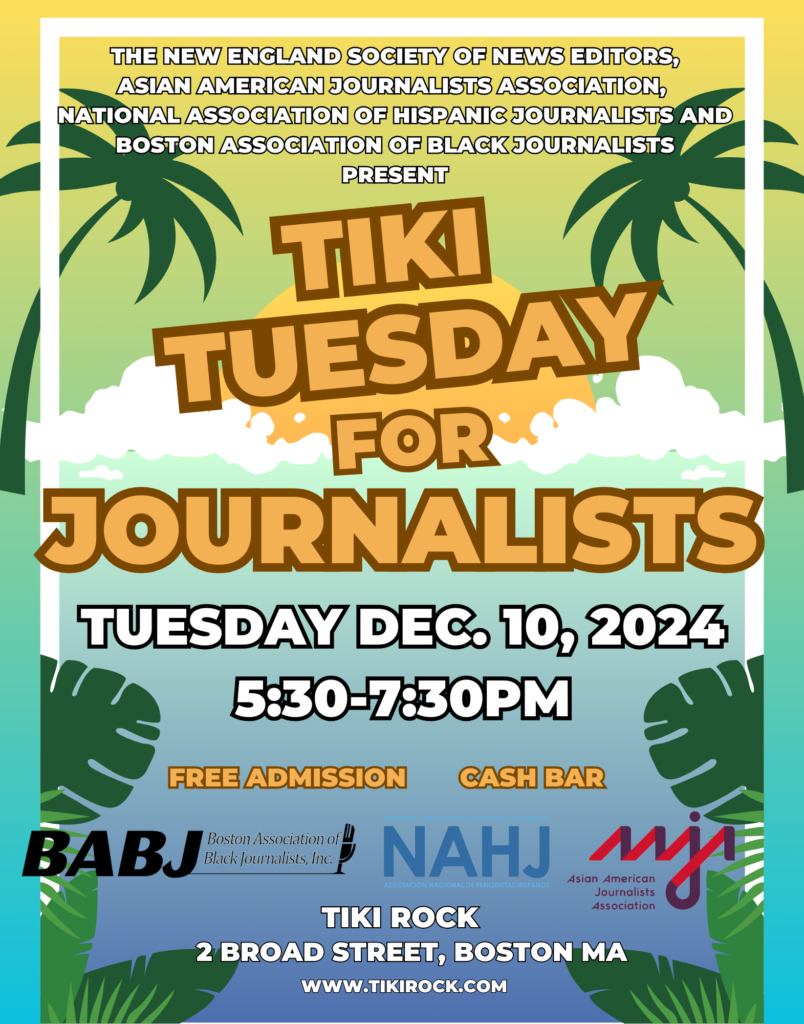
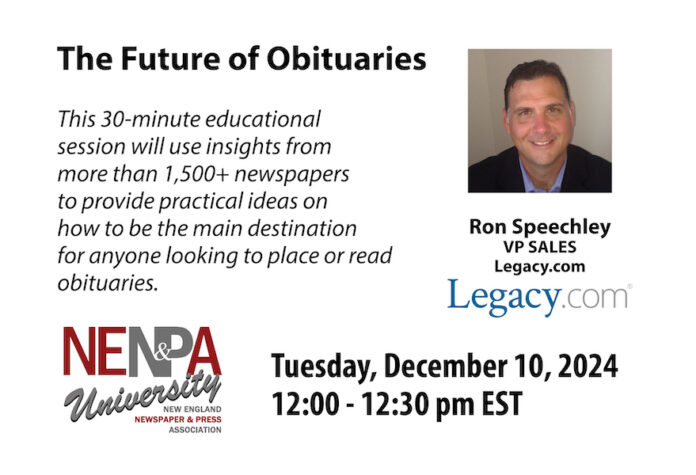
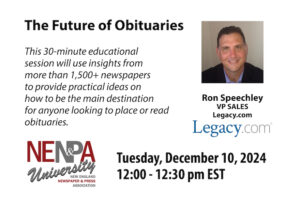 Join veteran media expert Ron Speechley, VP of Sales at Legacy.com, for a compelling
Join veteran media expert Ron Speechley, VP of Sales at Legacy.com, for a compelling 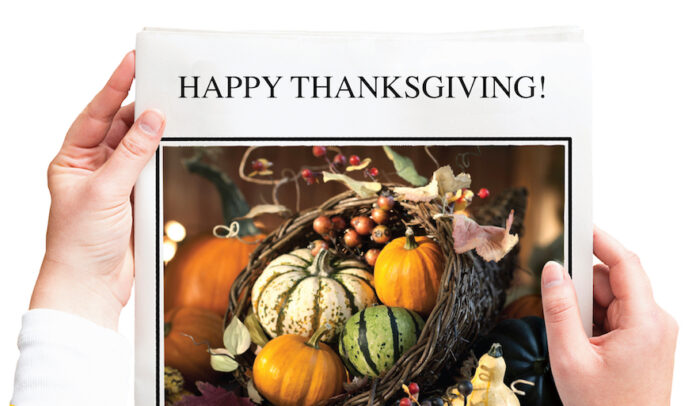
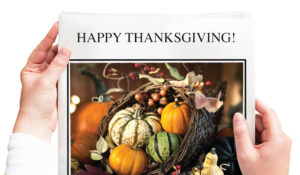 As we take a moment to reflect on the season of giving thanks, we want to express our deep appreciation for everything you do to make journalism thrive.
As we take a moment to reflect on the season of giving thanks, we want to express our deep appreciation for everything you do to make journalism thrive.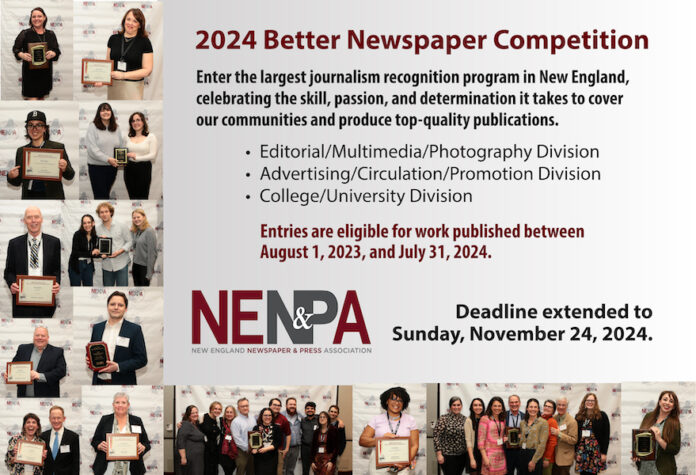
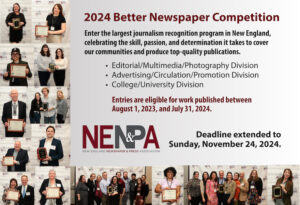 Good news! The deadline to
Good news! The deadline to 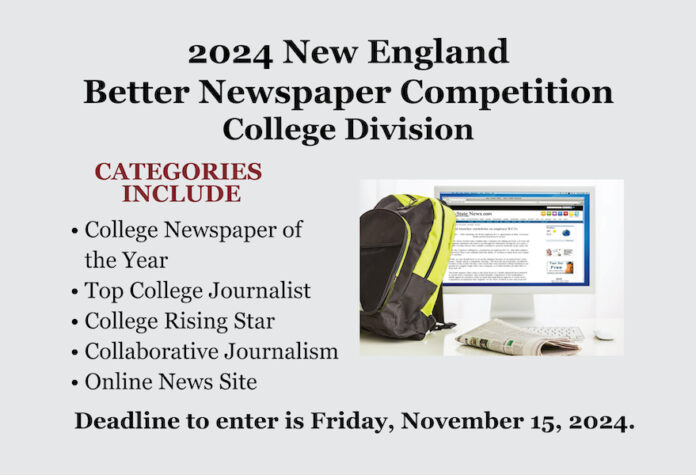
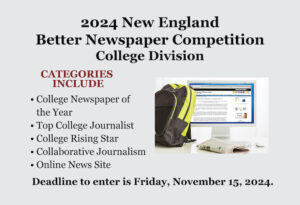 It’s not too late to submit your entries to the 2024 New England Better Newspaper Competition – New England’s most prestigious college journalism recognition program.
It’s not too late to submit your entries to the 2024 New England Better Newspaper Competition – New England’s most prestigious college journalism recognition program.